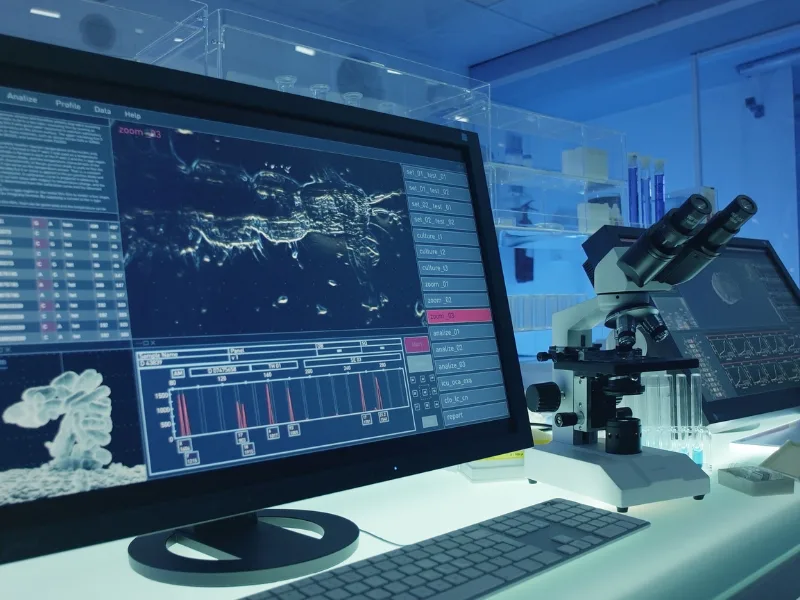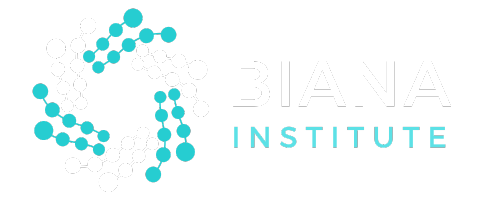Fall-Spring Session 25
ApplicationBIANA INSTITUTE – Fall-Spring Program
September 6, 2025 - April 25, 2026
BIANA INSTITUTE proudly announces that Prof. Igor Tsigelny will initiate an educational Fall-Spring Internship Program which will cover a range of topic areas and vary according to the students’ background and interests. The potential projects would include molecular modeling and simulation; personalized medicine; metabolomics; molecular mechanisms of diseases, including but not limited to cancer, neurodegenerative diseases, psychological disorders, viral diseases; machine learning and AI.

Topics
- Experience with the variety of computational tools for biomedical informatics.
- Lectures on the number of topics related to the program including but not limited to:
- Learning about biomedical data analysis
- Work with experienced faculty
- Work with a designated Mentor
Eligibility & Availability
- The summer internship opportunity is available for high-school students, from diverse backgrounds on a limited basis. The course is limited to the first eligible 20 students.
- We encourage under-represented minority students.
- The participating student would have to pay a fee of $3,500 for the entire internship.
Additional Criteria
- The most highly qualified applicants have at least basic experience in computer science and biology
- Must be at least 16 years of age by the program start date
- Must be currently enrolled at a high school
About The Professors
Igor Tsigelny, Ph.D.
Igor F. Tsigelny is a Research Professor at the Department of Neurosciences of UC San Diego, having long time collaboration with San Diego Supercomputer Center, and Moores Cancer Center,. He is a world-known expert in structural biology, molecular modeling, bioinformatics, using AI for drug design and treatment, and structure-based drug design. He has a Ph. D. from the Academy of Sciences of Ukraine. He was a postdoctoral fellow in the University of California in the laboratory of Susan S. Taylor from 1992–1995. Dr. Tsigelny is the author of over 200 papers in scientific journals including the Nature and Science groups of journals, and Proceedings of National Academy of Sciences of the USA. He had published and edited 4 scientific books. The book “Protein Structure Prediction: Bioinformatic Approach” that he edited, has been called “The Bible of all current prediction techniques” by BioPlanet Bioinformatics Forums. He is a member of editorial boards of over 10 scientific journals. He has around 15 existing and pending patents. Two drug-candidates developed by Dr. Tsigelny for treatment of Parkinson’s disease and brain cancer are licensed by UCSD to pharmaceutical companies and are in various stages of development His computational study of molecular mechanisms of Parkinson’s disease has been included in the US Department of Energy publication “Decade of Discovery” where the best computational studies of the decade 1999–2009 have been described. The latest his studies are devoted to finding treatment for COVID-19. He published six articles in 2020–2022 devoted to this topic. Ten of theoretically predicted COVID-19 drugs are in various experimental and clinical studies. He successfully mentored the UCSD programs for undergraduate and high-school students for several years.
Valentina Kouznetsova, Ph.D.
Valentina Kouznetsova is a Research Professor at UCSD (San Diego Supercomputer Center). She studies molecular mechanisms of various diseases including cancer, diabetes, and neurological disorders. Her work includes development of metabolic, genetic, and combined biomarkers for early diagnostics and distinction of different types and stages of a disease; development of inhibitors of signaling and metabolic pathways involved in a disease; protein modeling; and molecular simulations. She is an expert in computational drug design. She developed drugs for treatment of Parkinson’s disease and glioblastoma that were licensed from UCSD and are in development in industry. She is an author of more than 50 scientific papers including publications in Nature and Science series of journals, 3 books, 8 book chapters, and 13 patents. Her article Locating Blood Vessels in Retinal Images by Piecewise Threshold Probing of a Matched Filter Response exceeded the 2000 citations. She is a mentor of UCSD programs for high-school students, who participate in scientific conferences and are co-authors of several research papers. Many of her former mentees currently are enrolled in the best universities including Stanford, Harvard, Brown, Yale universities, MIT and Caltech institutes, and others. Dr. Kouznetsova obtained her Ph.D. degree in Technical Cybernetics and Information Theory from the Academy of Sciences of Ukraine. Her book “Self-Organization in Technical Systems” published in XX century was one of the first books devoted to the deep learning AI concepts.
Timeline
August 10, 2025 Application Period opens
August 30, 2025 Applications will no longer be accepted
September 1 – 4, 2025 Interviews of applicants; Notification of acceptance or waitlist status
September 5, 2025 Student acceptance due
September 6 Program begins
Week of April 25th: Final presentations at the program symposium
April 25 Program concludes
Program Application
How to apply
Applications require the following:
- A personal statement*
- Your educational transcript (unofficial transcripts are acceptable)
- A resume
- At least one, and up to three personal references.
* A personal statement provides you with an opportunity to explain why you are interested in the summer internship opportunity.
Use your best judgement on what to include, but the following are often helpful to include:
- A brief description of your academic record, relevant classes, etc.
- A summary of any opportunities you have already had for research related activities. If you have not had these opportunities yet. That is OK, too.
- We strongly recommend a description of your academic and career goals, but more importantly how the internship could help you accomplish them.
Frequently Asked Questions
I do not have (or only have limited) clinical, biomedical, and/or informatics background. Am I still encouraged to apply?
Yes, all applicants are encouraged to apply. Our trainees come from a diverse pool, some of whom have no formal clinical, biomedical, and/or informatics training/experiences.
I cannot fully attend the program. Would this still be okay?
Unfortunately, we would expect our trainees to fully attend the program. This is because we would like to make sure our trainees have enough time for a more complete research experience, and we have a structured program (including lectures, and final presentation conference) that we would like every trainees to attend.
Are there resources for travel to San Diego or housing in San Diego?
The program is a hybrid combination of in-institute study and on-line study, so in many cases you would not need to visit San Diego.
Do I need to have anything to bring to the internship?
We recommend you have your personal laptop/computing device.
